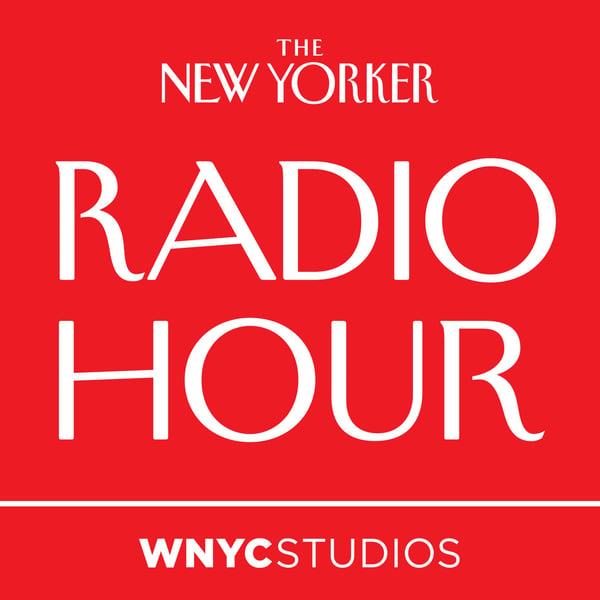The Russian Activist Maria Pevchikh on the Fate of Alexey Navalny, and the Future of Russia
The New Yorker Radio Hour
WNYC Studios and The New Yorker
4.2 • 5.5K Ratings
🗓️ 3 March 2023
⏱️ 26 minutes
🧾️ Download transcript
Summary
Well before launching the horrifying campaign against Ukraine a year ago, Vladimir Putin had been undermining Russia as well: normalizing corruption on a massive scale, and suppressing dissent and democracy. One of the darkest moments on that trajectory was the poisoning of the opposition leader Alexey Navalny with the nerve agent novichok. Navalny and a team of investigators had illustrated the corruption of Putin and his circle in startling detail, and Navalny began travelling the country to launch a bid for the Presidency. “Every time when I heard Navalny giving an interview, I don’t think there was one interview where he wasn’t asked, ‘How come you’re still alive? How come they still haven’t they killed you?,’ ” recalls the Russian activist Maria Pevchikh, the head of investigations and media for Navalny’s Anti-Corruption Foundation. “And Navalny is rolling his eyes saying, ‘I don’t know, I’m tired of this question, stop asking. I don’t know why I’m still alive and why they haven’t tried to assassinate me.’ ” Pevchikh was travelling with Navalny when he was poisoned, and helped uncover the involvement of the F.S.B. security services. After surviving the assassination and recuperating abroad, Navalny returned to Russia only to be arrested and then detained in a penal colony. “I think Putin wants him to suffer a lot and then die in prison,” Pevchikh tells David Remnick. Still, she maintains hope. “The situation is so chaotic, specifically because of the war,” she says. “Is the likelihood of Navalny being released when the war ends high? I think it is almost certain.” Pevchikh also served as an executive producer of the documentary “Navalny,” which is nominated for an Academy Award.
Transcript
Click on a timestamp to play from that location
| 0:00.0 | This is The New Yorker Radio Hour, a co-production of WNYC Studios and The New Yorker. |
| 0:13.0 | Welcome to The New Yorker Radio Hour, I'm David Remnick. |
| 0:16.6 | A couple of weeks ago on the program, I was talking about the anniversary of the invasion |
| 0:21.0 | of Ukraine, along with the historian Stephen Kotkin. |
| 0:24.5 | And he said something that really struck me. |
| 0:26.9 | But Vladimir Putin is destroying both countries, Ukraine and Russia. |
| 0:32.0 | The horrifying campaign against Ukraine began a year ago. |
| 0:35.6 | But for quite a long time, Putin had been dismantling Russia's civil society and with |
| 0:40.1 | it its international reputation and really its long-term economic prospects. |
| 0:47.6 | One of the darkest moments along this path came in 2020, with the poisoning, the attempted |
| 0:52.8 | murder of Alexey Navalny. |
| 0:55.8 | Navalny is a prominent dissident and opposition leader, and he and a team of investigators |
| 1:00.6 | illustrated in startling detail the corruption of Putin himself and his circle of AIDS and |
| 1:06.6 | oligarchs. |
| 1:08.1 | For his efforts, Navalny was poisoned with a nerve-agent called Novotuk, which was almost |
| 1:13.4 | certainly done by the FSB, the security services. |
| 1:17.3 | He survived the attack and he's now being held in a Russian penal colony. |
| 1:22.5 | The Russia has a future after this disastrous time. |
| 1:26.2 | Alexey Navalny may well be pivotal to it. |
| 1:30.3 | One of his closest colleagues is Maria Phevczyk. |
| 1:33.5 | Phevczyk helps to run his anti-corruption foundation and she's the head of investigations |
| 1:38.4 | in media. |
... |
Please login to see the full transcript.
Disclaimer: The podcast and artwork embedded on this page are from WNYC Studios and The New Yorker, and are the property of its owner and not affiliated with or endorsed by Tapesearch.
Generated transcripts are the property of WNYC Studios and The New Yorker and are distributed freely under the Fair Use doctrine. Transcripts generated by Tapesearch are not guaranteed to be accurate.
Copyright © Tapesearch 2025.

